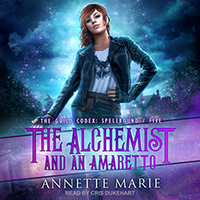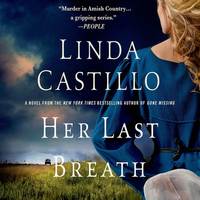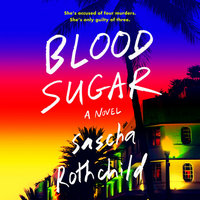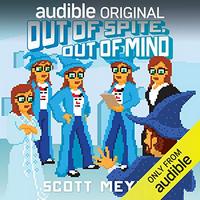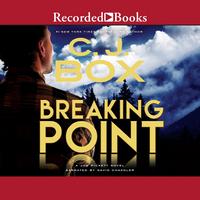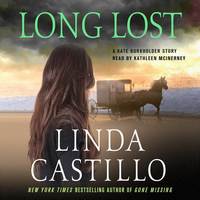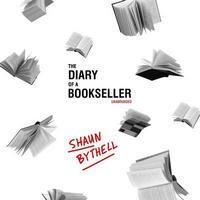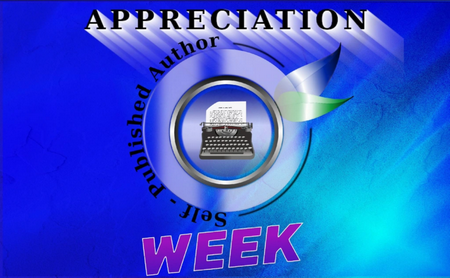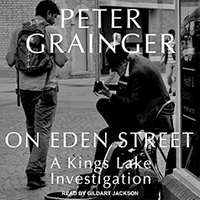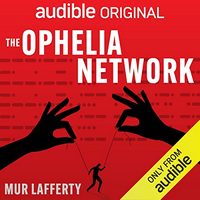 The Ophelia Network
The Ophelia Network
by Mur Lafferty, Khristine Hvam (Narrator)
DETAILS: Publisher: Audible Studios Publication Date: May 26, 2022 Format: Audible Original Length: 2 hrs., 42 min. Read Date: October 13-14, 2022

What’s The Ophelia Network About?
Under a dystopian U.S. government, a group of resistance workers coordinate through encoded messages in newspapers—but when the government sends censors to those outlets, they have to find a new way to spread the word to their operatives.
Which is where Libby comes in—it’s a children’s TV show—sort of a Where in the World is Carmen Sandiego?, but with puppets. The show’s new intern (a recently laid-off newspaper reporter) is using nonsense lyrics in their songs to communicate these messages.
We join the story when the actor playing the human character on the show is being interrogated, and get flashbacks catching us up to the present.
All of this happens under the watchful and helpful gaze of the “unhackable” Alexa/Siri-esque electronic assistant, Ophelia, that’s in every office, interrogation room, and restaurant.
Khristine Hvam
I’ve listened to something like twenty audiobooks narrated by Hvam—all reading Faith Hunter works (I thought I listened to a non-Hunter book, but can’t prove it). I enjoy what she does, she can deliver solid character work and accents, and evoke the right emotions. What I didn’t know is that a cartoon voice from her can crack me up—there’s a giggle we hear in this that would be worth the purchase price (if Audible didn’t include it for members). There’s one other character voice that doesn’t sound like someone from Hunter’s works, which is almost as good, too.
I had a blast with this.
So, what did I think about The Ophelia Network?
A novel-length version of this story might be too much—but I think this novella isn’t quite enough. It’s just a little too short, the story doesn’t get to be fully played out. Yes, Lafferty closes things off cleverly (especially if she didn’t want to get detailed about the ending), and no, I don’t think we needed to see the government fall/change for this to be an effective story. But we needed something a little more.
I am not complaining about what Lafferty and Hvam gave us, though—I just wanted more of it. I don’t know if a sequel is planned, but I’d welcome it. It’s a good Orwellian-ish story but with just enough humor to keep it from being entirely oppressive and dark. There’s a lot more to explore, but if that doesn’t happen, I’m satisfied with what we received.
This caught my eye after I read Lafferty’s Station Eternity, and seeing Hvam’s name on it sealed the deal. I’m going to keep an eye out for more from Lafferty, there’s something that she’s doing that just clicks with me. The Ophelia Network isn’t perfect, but I enjoyed this glance at a dystopian future, the characters and plot worked, and Hvam knocked it out of the park. If you have the means, give it a shot.

![]()


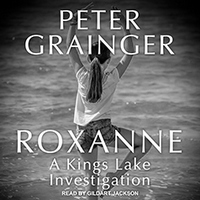


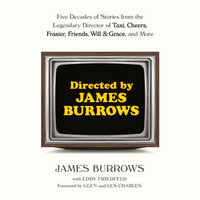

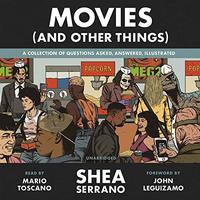
 Who’s the better tough guy movie dog owner? (Will Smith in Legend, Tom Hardy in The Drop, or Keanu Reeves in John Wick?)
Who’s the better tough guy movie dog owner? (Will Smith in Legend, Tom Hardy in The Drop, or Keanu Reeves in John Wick?)